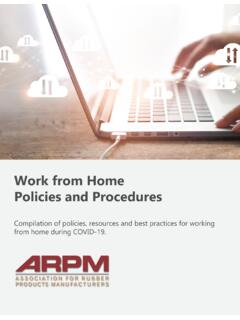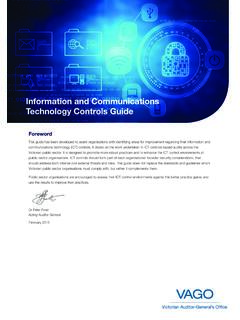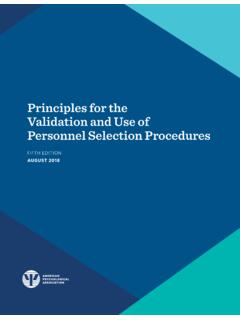Transcription of Communications Policies and Procedures Guide - Delhi
1 Communications Policies and Procedures Guide Office of College Relations and Advancement Communications Guide - Policies and Procedures Introduction A successful college image is much more than a logo; it includes everything we say about ourselves, how we present ourselves, how we treat students, and the images and words we use. All of these interactions are very important in shaping the public s perception of SUNY Delhi . People form an opinion every time they view something that carries our image or hear the words SUNY Delhi . If we put forth a positive, consistent image in our Communications , our actions will match what we stand for, and SUNY Delhi s integrity and stature will continue to grow.
2 SUNY Delhi s image is built in accordance with college policy: The Office of College Relations and Advancement is charged with the leadership and oversight of the college s public image and assuring the consistency and quality of that image in all college Communications that reach internal and external audiences. This includes logos and marks, visual identity, style, usage, media relations, crisis communication , the college s web site, internal campus communication , campus distribution of mass email, community relations activities, displays, and signs. College Relations and Advancement shall develop standards, guidelines and Procedures necessary for the effective management of college communication efforts, and shall routinely communicate these to college departments.
3 This Guide serves as a resource to the campus community to help everyone work toward Communications that are consistent and effective and further enhance SUNY Delhi as a great place to learn, work and live. College Relations and Advancement Contacts Office of College Relations and Advancement Bush Hall 142 General phone: 607-746-4520 Joel Smith Vice President for College Relations and Advancement 607-746-4520 Kim MacLeod, APR Director of Communications and New Media 607-746-4603 Jill Reid Webmaster 607-746-4524 Tracy Hoeppner Keyboard Specialist 1 607-746-4521 Ann Kochersberger Clerk 2 607-746-4600 Media Relations Public awareness and support of SUNY Delhi and its activities are enhanced through the maintenance of good working relationships with the media and public.
4 SUNY Delhi s Office of College Relations and Advancement strives to disseminate information in a cooperative and coordinated manner to those who request assistance. SUNY Delhi s media policy is based on a commitment to supply accurate and timely information for which the media and public have a just and reasonable claim. The Office of College Relations and Advancement shall be responsible for contact with the news media, including creation and distribution of information relating to general college news or topics requiring an institutional response. Some designees may be authorized by College Relations and Advancement to distribute specific information to the media. News releases related to the college or its respective units shall be edited, approved and distributed by College Relations and Advancement.
5 News conferences shall be coordinated by or through College Relations and Advancement. The College President, Vice President for College Relations and Advancement and the Director of Communications and New Media serve as spokespersons and convey the official college position on issues of general college-wide impact or significance, or of a controversial or sensitive nature. Inquiries from the media regarding such issues should be immediately referred to the Office of College Relations and Advancement. The President, Vice President for College Relations and Advancement or Director of Communications and New Media may designate another college representative to serve as a spokesperson when appropriate.
6 Faculty and staff are free to respond to requests from the media regarding their research, scholarship, teaching or professional expertise. In such cases, faculty and staff are asked to notify the Office of College Relations and Advancement to ensure a coordinated response if other college representatives are contacted on a similar issue. This also assists the Office of College Relations and Advancement in building relationships with various media and highlighting the college s notoriety. Should a member of the media contact a faculty or staff member and ask to speak about SUNY Delhi or matters related to the college, faculty and staff and/or students, the inquiry should be referred to the Office of College Relations and Advancement.
7 The authorized spokespersons for SUNY Delhi are: President Candace Vancko 607-746-4090 Joel Smith Vice President for College Relations and Advancement 607-746-4522 Kim MacLeod Director of Communications and New Media 607-746-4520 When a Reporter Calls Guidelines for communicating with the media when issues are non-controversial and limited to the faculty or staff member s area of expertise: Obtain the name of the person calling, the media organization, all contact information, and, if available, the anticipated time of release of information in print or broadcast. Notify the Office of College Relations and Advancement with applicable information. Return all inquiries as soon as possible.
8 Media outlets are working on tight deadlines and will seek another source if calls are not returned. Do not feel compelled to conduct a phone interview or in-person interview. If you would like to think before answering, ask the reporter to email specific questions. In most instances, this will be acceptable to the reporter if you are providing information in a timely manner. Consult with the Office of College Relations and Advancement prior to answering any inquiries. We are here to help. Answer only the questions that are asked. Do not elaborate. Do not speculate. It is okay not to know the answer to a question. Avoid no comment, as it has a negative connotation. Make sure the reporter understands your answers.
9 In many cases, you are the expert educating the reporter, and in turn, the media outlet s audience. Remember you are representing SUNY Delhi . Personal opinions should be clearly and carefully identified as such. There is no such thing as off the record. Expect that anything you say to a reporter will be printed. Provide your best contact information for follow-up questions. Issues that should not be discussed with reporters include legal issues, personnel issues, matters of college integrity, campus crises or emergency situations. Refer all such inquiries to the Office of College Relations and Advancement. Any inquiries involving specific students are subject to FERPA regulations (see below) and should be directed to the Office of College Relations and Advancement.
10 Any inquiries involving specific faculty or staff members should be directed to the Office of College Relations and Advancement. Family Educational Rights and Privacy Act of 1974 (FERPA) College students rights of privacy and access regarding their educational records are articulated in the Family Educational Rights and Privacy Act of 1974 (FERPA), commonly known as the Buckley Amendment. The Act helps protect the privacy of student records by requiring that institutions limit the disclosure of information from these records to third persons, notify students (or their parents, if dependency has been established) of the rights to review the students educational records and the right to seek correction of information contained in the records.







